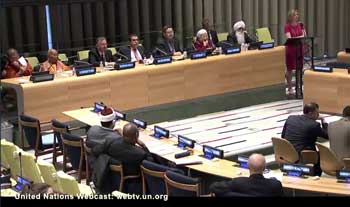
Apr 23, 2015 | Focolare Worldwide
Video of High-Level Thematic Debate
What are the religions in today’s world? Many see them as obstacles to peace, the residue of ages past that today are the cause of violent extremism. What would the world really be more peaceful without the religions? The High-Level Thematic Debate on Promoting Tolerance and Reconciliation suddenly became animated. The second day of the UN meeting offered some directives. During the opening address, Secretary General Ban Ki-moon proposed an advisory committee formed by the leaders of the world’s religions, to help the United Nations find solutions to the current conflicts, often between the followers of different religions. The plenary session that followed included testimonies from 15 religious leaders. All present agreed that religions should help to build peace, moving beyond mere tolerance to mutual acceptance, with the awareness that there are already people around the world who are already living like this in their daily lives. In her talk, Maria Voce recalled the long experience lived by the Focolare Movement: “The encounter between religions and cultures is an ongoing and fruitful experience that is not limited to tolerance, mere recognition of differences, and it goes beyond reconciliation, although that is fundamental, and it creates what could be called a new broader and shared common identity.” And this takes place in contexts that have been struck by serious crises, such as in Algeria, Syria, Iraq, Lebanon, the Democratic Republic of the Congo, Nigeria and the Philippines. 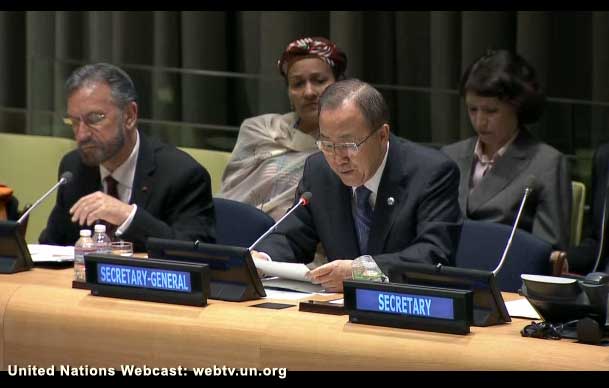 In response to the challenges and to the violence, she proposed an “extremism in dialogue,” that is, a dialogue requiring maximum engagement “that is risky, demanding, challenging, that aims at severing the roots of misunderstanding, fear and resentment.” Then she invited all to aim for a “a universal civilization that leads all peoples to consider themselves part of “civilization of alliance; a universal civilization which enables peoples to see themselves as part of a great happening, which is both varied and fascinating, that is humankind’s journey towards unity. She invited the UN to rethink its own calling, to reformulate its mission in order to be “an institution which truly works towards unity among nations, while respecting their strong identities.” According to Maria Voce, to say that religions are the cause of the tensions is to have a too restricted vision of the situation. What we are witnessing in many areas of the world, from the Middle East to Africa, has very little to do with religion, but has much to do with the structures marked by the culture war. From any point of view, in these cases we should not speak so much about wars of religion but more concretely, realistically and prosaically, about the religion of war. Everyone was in agreement: religions lead to peace, if not, they are instrumentalised for other ends. And so the vocation of religions is clearly stated: The Golden Rule, the foundational inspiration of all religions, which unites them, the idea of one universal human family.
In response to the challenges and to the violence, she proposed an “extremism in dialogue,” that is, a dialogue requiring maximum engagement “that is risky, demanding, challenging, that aims at severing the roots of misunderstanding, fear and resentment.” Then she invited all to aim for a “a universal civilization that leads all peoples to consider themselves part of “civilization of alliance; a universal civilization which enables peoples to see themselves as part of a great happening, which is both varied and fascinating, that is humankind’s journey towards unity. She invited the UN to rethink its own calling, to reformulate its mission in order to be “an institution which truly works towards unity among nations, while respecting their strong identities.” According to Maria Voce, to say that religions are the cause of the tensions is to have a too restricted vision of the situation. What we are witnessing in many areas of the world, from the Middle East to Africa, has very little to do with religion, but has much to do with the structures marked by the culture war. From any point of view, in these cases we should not speak so much about wars of religion but more concretely, realistically and prosaically, about the religion of war. Everyone was in agreement: religions lead to peace, if not, they are instrumentalised for other ends. And so the vocation of religions is clearly stated: The Golden Rule, the foundational inspiration of all religions, which unites them, the idea of one universal human family.  In the roundtable at the afternoon plenary, which was moderated by BBC’s, Laura Trevelyan, Rabbi David Rosen asked why so many young people feel drawn to extremism: “Perhaps because they are searching for their own identity, or for some meaning in life.” “You normally do not mention God at the United Nations,” Rabbi Arthur Schneier dared to remark: “How are we to deal with this problem – that the UN has to be neutral – when 5 of the 7 billion people on this earth belong to a religion?” For Bhai Sahib Mohinder Singh, Sikh from Birmingham: “God is omnipresent, in each one of us, therefore you cannot say that God is not here.” Maria Voce: “You speak of God when you speak of justice, sharing all the goods of the earth, sustainable development; you speak of God when you think of what we are preparing for the future generations. This is speaking of God. It is not necessary to speak of him in the abstract.” How can we preserve the integrity of interreligious dialogue? Are the religious leaders here renouncing something by coming here to the UN to talk about resolving conflicts? “I’m not renouncing anything,” affirmed Maria Voce. “I’ve come out of love, thinking about bringing my contribution of love to humanity. I’ve felt enriched by this possibility.” She concluded with a glance towards the new generations: “Returning home, what I will do will be to support the activities of the young and the very young, because I believe in their prophetic power.” Then she gave the floor to Ermanno Perotti, a young Italian had accompanied her on her visit to the United States. The twenty five year-old, with a Master’s Degree in Development Economics, used the occasion to present the l’Atlas of Universal Fraternity, a dossier of projects that promote universal fraternity in all corners of the world. Maria Voce added: “With the hope that one day even these ‘fragments of fraternity’ can be presented to the United Nations,” and that the United Nations will gather them. With this vision it becomes clear that religions have a great opportunity, but also a great task: to build peace and respond to the challenges with “extreme dialogue” rather than closing in on their own group. Susanne Janssen, New York
In the roundtable at the afternoon plenary, which was moderated by BBC’s, Laura Trevelyan, Rabbi David Rosen asked why so many young people feel drawn to extremism: “Perhaps because they are searching for their own identity, or for some meaning in life.” “You normally do not mention God at the United Nations,” Rabbi Arthur Schneier dared to remark: “How are we to deal with this problem – that the UN has to be neutral – when 5 of the 7 billion people on this earth belong to a religion?” For Bhai Sahib Mohinder Singh, Sikh from Birmingham: “God is omnipresent, in each one of us, therefore you cannot say that God is not here.” Maria Voce: “You speak of God when you speak of justice, sharing all the goods of the earth, sustainable development; you speak of God when you think of what we are preparing for the future generations. This is speaking of God. It is not necessary to speak of him in the abstract.” How can we preserve the integrity of interreligious dialogue? Are the religious leaders here renouncing something by coming here to the UN to talk about resolving conflicts? “I’m not renouncing anything,” affirmed Maria Voce. “I’ve come out of love, thinking about bringing my contribution of love to humanity. I’ve felt enriched by this possibility.” She concluded with a glance towards the new generations: “Returning home, what I will do will be to support the activities of the young and the very young, because I believe in their prophetic power.” Then she gave the floor to Ermanno Perotti, a young Italian had accompanied her on her visit to the United States. The twenty five year-old, with a Master’s Degree in Development Economics, used the occasion to present the l’Atlas of Universal Fraternity, a dossier of projects that promote universal fraternity in all corners of the world. Maria Voce added: “With the hope that one day even these ‘fragments of fraternity’ can be presented to the United Nations,” and that the United Nations will gather them. With this vision it becomes clear that religions have a great opportunity, but also a great task: to build peace and respond to the challenges with “extreme dialogue” rather than closing in on their own group. Susanne Janssen, New York
Video of Round Table Debate: http://webtv.un.org/high-level-thematic-debate Press Release Press Area
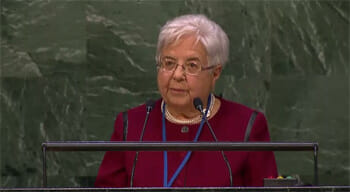
Apr 22, 2015 | Focolare Worldwide

To risk your own life so as to relieve the suffering of the poor. This was Maria Voce’s invitation as she spoke of the last terrible phase of the Second World War, when in 1943 “a group of young women got together in the small city of Trent in northern Italy. While their city was being bombed, those young people, who were guided by a young teacher named Chiara Lubich, and urged on by a new understanding of the radical nature of Gospel love, decided to risk their lives to relieve the suffering of the poor.”
A choice many people make today too, helping to regenerate the fabric of society: Maria Voce referred to the refugee camps in Lebanon, Syria, Jordan and Iraq; the slums surrounding some huge cities and the united strength of those who “introduce into the destructive cycle of conflict a commitment to regenerate the fabric of society, by doing – according to the vocabulary of this organization would say – peace-building action”. She affirmed: “Those young women decided to break the vicious circle of violence by responding with attitudes and actions which in the atmosphere of conflict might have seemed unrealistic or even irrelevant. However, they were not and they are not!”
“Today too we are experiencing very serious political, institutional, economic and social breakdown, which requires equally deep-seated responses, able to change the prevailing paradigm. It seems that conflict and violence prevail in many parts of the world, affecting innocent people, guilty only of being in disputed territory, or belonging to a particular ethnicity or adhering to a specific religion.”
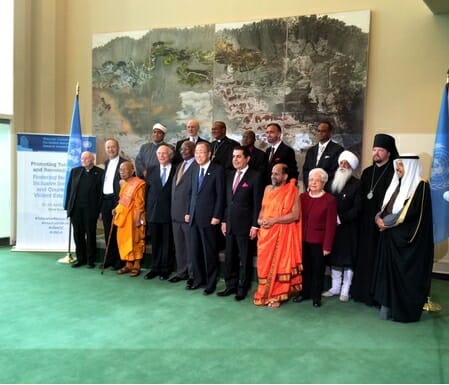 The encounter between cultures forms a new identity: “In the Focolare Movement, which I have the honour to represent – Maria Voce said – the encounter between cultures and religions (Christianity, Islam, Judaism, Buddhism, Hinduism and Traditional Religions) is an ongoing and fruitful experience not confined to tolerance or the mere recognition of diversity. It goes beyond reconciliation, essential as that is, to create, so to speak, a new identity, one that is broader, more general and shared. It is an effective dialogue which brings together people of very different beliefs, including non-religious beliefs. It spurs us to see what the real needs are and to respond together to the most difficult challenges in society, culture, economics and politics, as our commitment to a more united and socially inclusive world. This is happening in places which have been or are at present characterized by very serious crises, such as Algeria, Syria, Iraq, Lebanon, the Democratic Republic of Congo, Nigeria and the Philippines.”
The encounter between cultures forms a new identity: “In the Focolare Movement, which I have the honour to represent – Maria Voce said – the encounter between cultures and religions (Christianity, Islam, Judaism, Buddhism, Hinduism and Traditional Religions) is an ongoing and fruitful experience not confined to tolerance or the mere recognition of diversity. It goes beyond reconciliation, essential as that is, to create, so to speak, a new identity, one that is broader, more general and shared. It is an effective dialogue which brings together people of very different beliefs, including non-religious beliefs. It spurs us to see what the real needs are and to respond together to the most difficult challenges in society, culture, economics and politics, as our commitment to a more united and socially inclusive world. This is happening in places which have been or are at present characterized by very serious crises, such as Algeria, Syria, Iraq, Lebanon, the Democratic Republic of Congo, Nigeria and the Philippines.”
The Focolare President dispensed with half measures. “If violent extremism exists – she stated – (…) our response must be similarly radical, but one that is structurally different, by which I mean “extremism in dialogue”! A dialogue which requires the highest level of engagement, which is risky, demanding, challenging and which aims to sever the roots of incomprehension, fear and bitterness.”
The civilisation of alliance: referring to the United Nations “Alliance of Civilizations”, one of the promotors of this event, Maria Voce asked “whether, nowadays, we could get closer to the roots of this new outlook and focus not only on an alliance of civilizations but on what might be called the “civilization of alliance”; a universal civilization which enables peoples to see themselves as part of a great happening, which is both varied and fascinating, that is humankind’s journey towards unity. A civilization which makes dialogue the pathway to recognizing each other as brothers and sisters, as free and equal.”
Among the many organisations represented at the debate, she mentioned New Humanity, the NGO which represents the Focolare Movement at the UN; and regarding the United Nations Organization itself she posed the question:
“Shouldn’t the United Nations Organization perhaps reconsider its own vocation, and reformulate its own fundamental mission? What does being a “United Nations” organization mean today, if not an institution which truly works towards unity among nations, while respecting their strong identities? It is certainly essential to actively maintain international security but, although security is vital, it is not necessarily the same thing as peace.
Conflicts within nations and international conflicts; the deep divisions we are aware of at world level, together with the great local and global injustices, in fact require a true conversion in the actions and choices made in the field of global governance, to put into practice the motto formulated by Chiara Lubich, and launched in this very place in 1997, “love your neighbor’s country as your own” so as to build up universal fraternity.
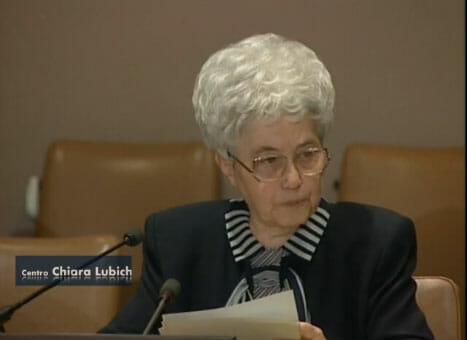
Chiara Lubich: “Toward a Unity of Nations and a Unity of Peoples” – United Nations Headquarters (New York), 28 May 1997
War is irreligion: “Lastly, we cannot give ground to those who attempt to describe current conflicts as “wars of religion” – Maria Voce went on. “War is by definition irreligion. Militarism, economic dominance and intolerance at all levels are causes of conflict, together with many other social and cultural factors among which religion is often only an unfortunate pretext. What we are witnessing in many areas of the world, from the Middle East to Africa, including the tragic deaths of hundreds of people fleeing wars who are shipwrecked in the Mediterranean, has very little to do with religion. From any point of view, in these cases we should not speak so much about wars of religion but more concretely, realistically and prosaically, about the religion of war.
What can be done? Quoting Chiara Lubich, Maria Voce invited the audience to have the courage to “invent peace”. “There are many signs that a new awareness may finally emerge, out of this serious international situation, of the need to work together for the common good, (…) and with the courage to ‘invent peace’. The time for ‘holy wars’ is over. War is never holy, it never has been. God does not want it. Only peace is truly holy because God himself is peace.”
She ended with reference to the Golden Rule which reflects the foundational inspiration of religions and unites them, so that they should “not [be] a tool used by other powers, even for the noblest aims; or precepts studied so as to resolve conflicts or crises, but rather a spiritual process which can be lived and becomes a community able to share and give meaning to the joys and sufferings of people today, channelling everything towards the realization of one universal human family.”
Read the full text
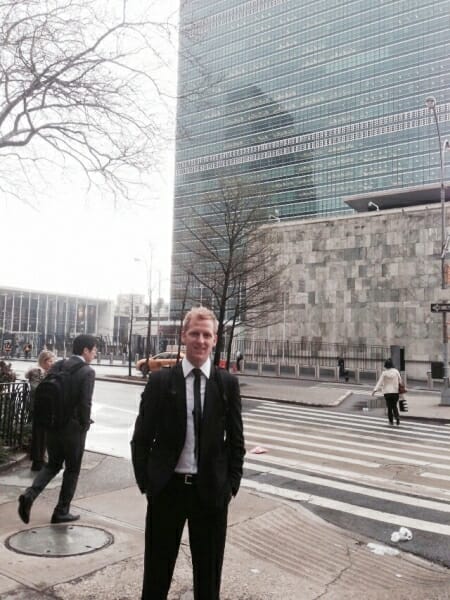
Apr 22, 2015 | Focolare Worldwide
 The UN headquarters with the thousands of people who work there, heads of state and other VIPs, going there would be a dream for many people. Ermanno Perotti, a 25-year-old student of economics and development is there now, but not as one of the many visitors who wander along the endless corridors with their guide. He was asked to accompany Maria Voce, President of the Focolare Movement who had been invited, as one of the religious leaders to speak during the High Level Debate on “Promoting Tolerance and Reconciliation: Fostering peaceful, Inclusive Societies and Countering Violent Extremism.”
The UN headquarters with the thousands of people who work there, heads of state and other VIPs, going there would be a dream for many people. Ermanno Perotti, a 25-year-old student of economics and development is there now, but not as one of the many visitors who wander along the endless corridors with their guide. He was asked to accompany Maria Voce, President of the Focolare Movement who had been invited, as one of the religious leaders to speak during the High Level Debate on “Promoting Tolerance and Reconciliation: Fostering peaceful, Inclusive Societies and Countering Violent Extremism.”
The impression of Perotti is shared by many: the representative of each nation gives his or her contribution, many beautiful words and positive initiatives – but they seem almost isolated and each one appears to see this meeting as a platform to promote their own ideas. But what I find a bit hard to digest is that they don’t really listen to one another. But what does attract me is to see their efforts to fill this emptiness with true listening and dialogue. With this vision that he learnt from the life of the young people of the Focolare, he understood the attraction of taking on a commitment in politics so as to bring about truer relationships.
However, on the subject of how to prevent violence and fanaticism, almost all the speakers were in agreement, that there is no other way but dialogue among cultures. “I would love to run a school on dialogue right here at the UN” says Perotti. In fact 90% of the speakers emphasised the need for education and many spoke of the need to give women a voice and to fight against poverty.
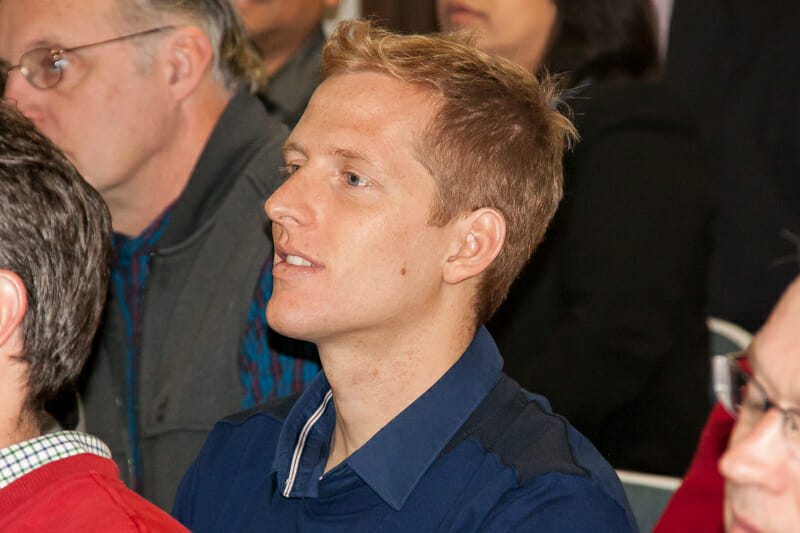
Ermanno Perotti
Many spoke of the hope they have in young people and we have to start there. Perotti wasn’t completely happy: “It’s always adults who speak about young people, where are the young people who speak about the young people?” He thinks his generation is already prepared for a multicultural future: “I grew up with this idea. In my class there are people of 10 different nationalities and 4 religions. We can show the world how we live in a spontaneous way in our daily lives.”
Today is the high point for him, to be part of a panel at the UN. Ermanno Perotti is not worried at all: “Speaking with Maria Voce we were saying that we wanted to live these days first of all as an experience of God. Today too at the UN will be an experience of God. As some of the speakers said today. In the end everything is summed up in the Golden Rule which means love of neighbor. So going there with the President, it’s simple because you go to love, to be one body with all the young people in the world”.
Susanne Janssen, New York
Live streaming at http://webtv.un.org/live/

Apr 21, 2015 | Focolare Worldwide
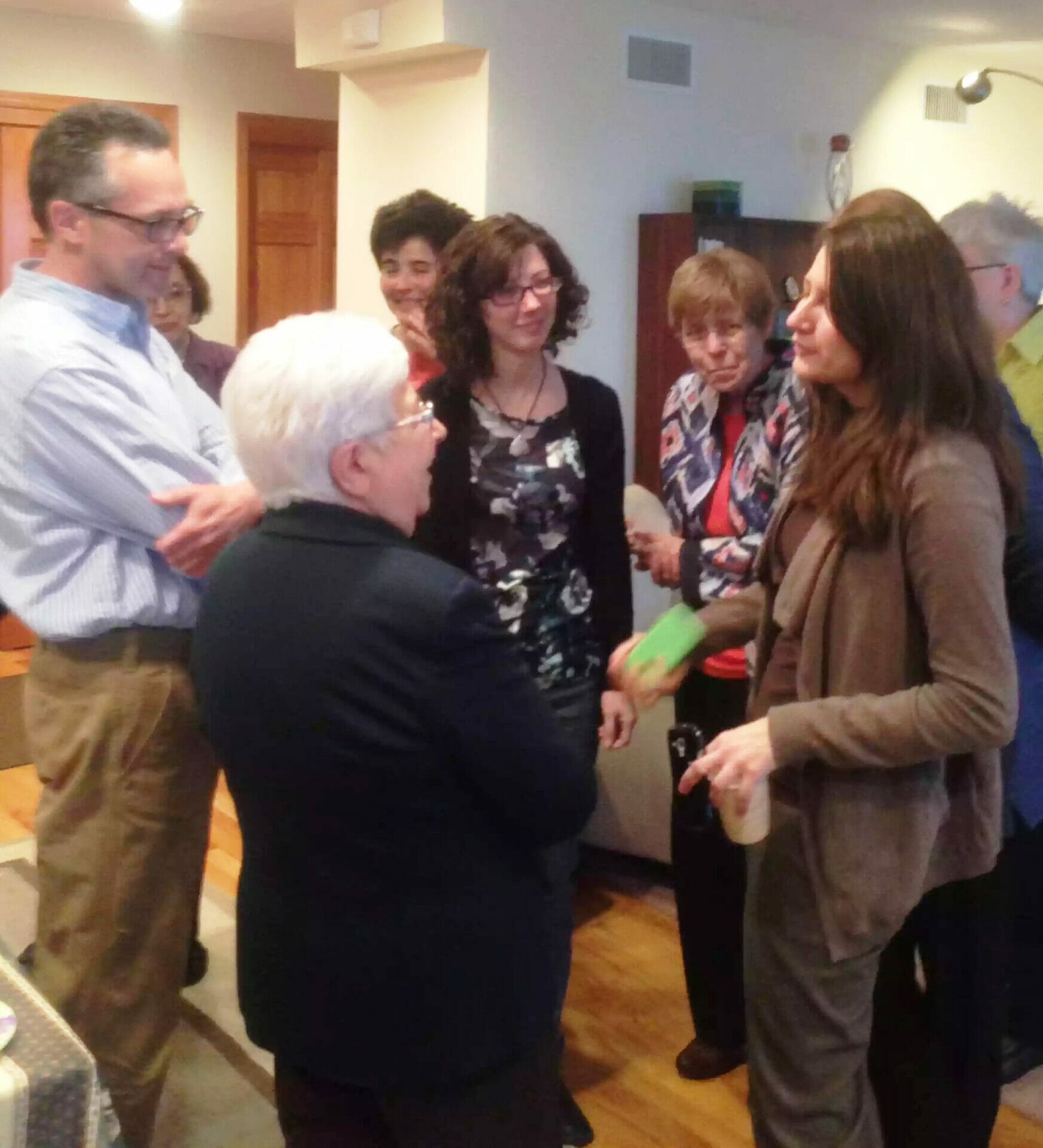 Today marks the beginning of the debate of the United Nations: “Promoting Tolerance and Reconciliation: Fostering peaceful, Inclusive Societies and Countering Violent Extremism”. Among the religious leaders invited to give their contribution is Maria Voce, President of the Focolare Movement. We asked her three questions before she entered the headquarters of the UN.
Today marks the beginning of the debate of the United Nations: “Promoting Tolerance and Reconciliation: Fostering peaceful, Inclusive Societies and Countering Violent Extremism”. Among the religious leaders invited to give their contribution is Maria Voce, President of the Focolare Movement. We asked her three questions before she entered the headquarters of the UN.
How do you feel before participating in this high level debate with representatives of 193 nations?
«I am quite at peace. What is often missing in these organizations is precisely the witness of what is already happening to bring about peace. My impression is that people often feel isolated and they need to be aware that someone else is out there with them, working for the same aims as they are. With such a great ideal as the one Chiara Lubich has given us, we do not work only for reconciliation or only for social justice but these are steps on the way towards unity».
If we look at the world today some might think that religions are the bearers more of division than of peace…
«Certainly religions are not supporters of war, none of them. The word religion means bond, it’s a bond between people, how can a religion make war? War is born in the hearts of people and people, whatever religion they belong to can be good or wicked. Instead religion is often exploited under the pretext of justifying a motivation that is anything but religious and is in fact inhuman, the desire for power, overthrowing the weak, selling one’s own merchandise including arms. The root of war certainly doesn’t lie in religion but in other motivations which are basically always egoistic».
When we look at today’s conflicts, for example in the Middle East or in Nigeria, are you still optimistic that peace is possible?
«I cannot help being an optimist because Jesus is peace. And since we follow Jesus we have to believe that peace is possible. It is true that Jesus said ‘I have come to bring the sword’ which means we have to take a stand too. I think that religions can help to reawaken the conscience of humanity: peace isn’t just one good among many but without peace all the other goods are useless. We can work for peace if we do it all together, both the rich and the poor, those who have power and those who do not, people who are religious as well as those who do not identify themselves with any religion. We have to commit ourselves to building these relationships of peace in the whole human family where we are all equal and therefore we should all witness to this equality».
The initiative for this high level debate at the United Nations in New York came from the President of the General Assembly, Sam Kutesa, the Secretary General Ban Ki Moon and the High Representative of the Alliance of Civilizations Nassir Abdulaziz Al-Nasser. Today’s topic is Strategies for fostering inclusive societies. Tomorrow, leaders representing various religions will be invited to give their witness to the role played by religions in building bridges of tolerance and reconciliation.
Susanne Janssen, New York
You can follow parts of the program on live streaming of the United Nations’s TV at http://webtv.un.org/live/
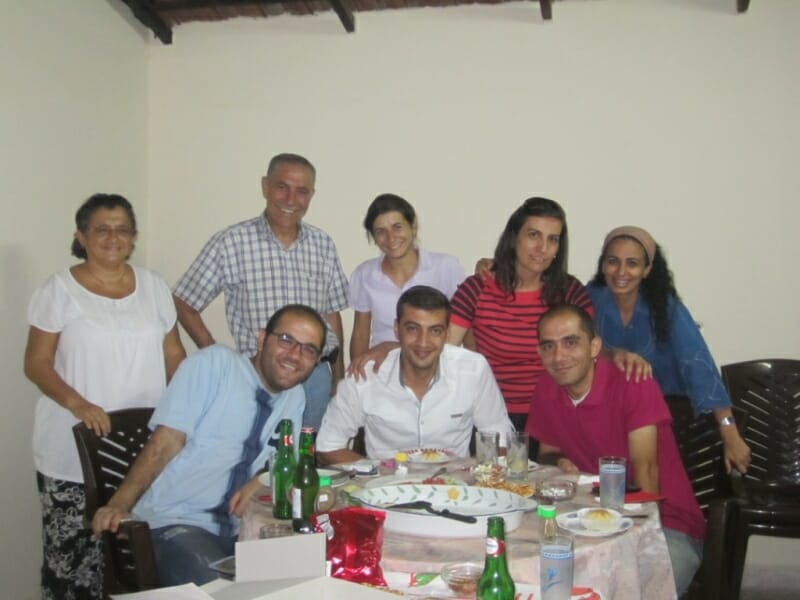
Apr 20, 2015 | Senza categoria
 With a lively gaze and gentle smile that veils some sadness, Ghada describes the tragic events taking place in the country she has chosen as her home. Ghada, what made you return to Syria?
With a lively gaze and gentle smile that veils some sadness, Ghada describes the tragic events taking place in the country she has chosen as her home. Ghada, what made you return to Syria?
At the age of tewenty I left my family and country to follow God. In September 2013 when I requested to return to Syria, I felt the same impetus as before. I was frightened by the thought that I might die, but what I felt more strongly was the attraction to go back and live alongside the people whom I had met years earlier, to help them feel that they were not abandoned. I was urged by a desire to share their life, their fears, their unstable daily lives, because the bombs rain down when you least expect it.
But isn’t there any warning before bombardments, so that you can take cover somewhere?
There are no sirens announcing the strikes, nor is there any strategy in place that would allow you to know when the rockets will hit. On the other hand, this is now the fifth year of war and one cannot stay barricaded forever. You can stop for a day, a month, but then even through the mortars thunder, life must go on: the children go to school and parents work to support their families. Everything goes on under absolute risk and uncertainty. I lived the same drama when I was in the focolare house in Lebanon, but here it is far worse, much more difficult. Here you breathe terror and violence on all sides.
You had already been to Syria in the past. Can you tell us about the changes you’ve seen?
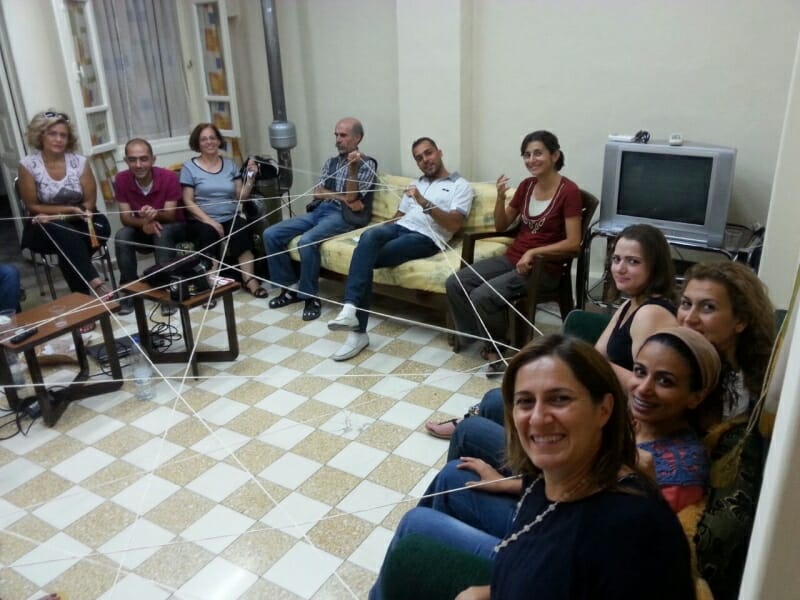 When I was in the focolar in Lebanon, I visited Aleppo, Homs and Damascus because there were still many people who wished to stay in contact with the Focolare. Because of the inner depth and sensitivity of the Syrian people, many meaningful relationships were created. We shared our Christian values that are so strongly felt in this place. Despite the plurality of Churches and rites, which is so typical of this land, there was still harmony amongst all. In 1994 when it was decided to open a focolare in Aleppo, two other focolarine and I were sent to open it. I was there for 9 years. Those were years of prosperity for Syria. The country didn’t have a public debt and the PIL was constantly rising. In the evenings we young women could go out and walk around freely.
When I was in the focolar in Lebanon, I visited Aleppo, Homs and Damascus because there were still many people who wished to stay in contact with the Focolare. Because of the inner depth and sensitivity of the Syrian people, many meaningful relationships were created. We shared our Christian values that are so strongly felt in this place. Despite the plurality of Churches and rites, which is so typical of this land, there was still harmony amongst all. In 1994 when it was decided to open a focolare in Aleppo, two other focolarine and I were sent to open it. I was there for 9 years. Those were years of prosperity for Syria. The country didn’t have a public debt and the PIL was constantly rising. In the evenings we young women could go out and walk around freely.
Now the storm has arrived. But the worst of it is the loss of any hope that this war can end. I return with the other focolarine, to say that we haven’t forgotten them, that Jesus has made us a family and this is why we want to take the same risks. Like everyone else, we go to work, to church, to market – without knowing whether or not we’ll return home again. We’re there because of the love that binds the community in Syria, and the community there knows that we’re ready to give our lives for them, just as they are ready to do for us. This reciprocity is truly exceptional. They compete in making sure we are well, sharing whatever they have.
You focolarine are in Damascus, such a fascinating place, with so much art and history. What is life like there today?
In the city, but also in the villages, every day is a deadly challenge. Transportation is always a mess, because of the lack of petro and constant road blocks. You know what time you leave, but you never know what time you’ll arrive. Homes are without electricity for hours, the same with water. You reach the point of exasperation. The exodus – for the people who are able to leave the country – is continually increasing. It is estimated that over six million people have migrated, in spite of the serious dangers. But religosity remains quite strong. On Good Friday all the Christians attended the Way of the Cross even though they were well aware that bombs could have exploded at any moment, and they also had their children with them. Recently, one of our youth groups spoke had a Skype call with some of their peers in Portugal. The Portuguese wanted to send things to them and were asking our young people what they needed. Even though they are in need of so many material things, they only repeated: “Pray for us, pray for peace, pray that this tailspin of hatred stops.”
Your choice to remain in Syria is a powerful and courageous one. . .
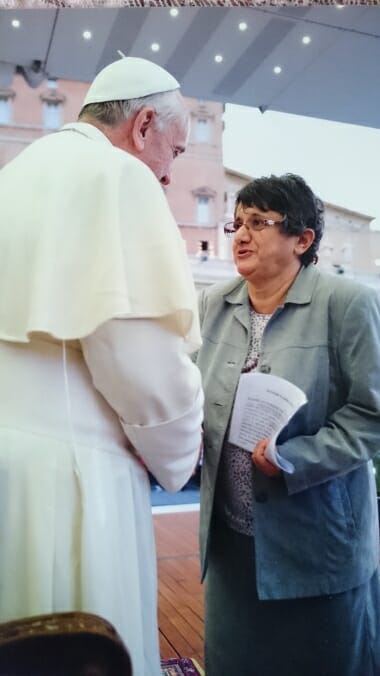 We don’t feel at all like heroes, because we are not here for personal motives. Before leaving I was able to meet Pope Francis: his encouraging words made me feel the love of the Church that draws near to this people that is undergoing such a hard trial. We also feel supported by the love of the Focolare Movement throughout the world. We need that support in order to not lose hope, powerless as we are in front of the supremecy of economic interests, and the international proliferation of weapons on the global market. We celebrate anniversaries; we create recreational moments for children and adults, in order to relieve the stress. We organise moments of spirituality; we pray together for peace. At Christmas our young people organised a concert. Three hundred people attended, including Muslims. Recently we celebrated a wedding. Two children were killed in that family and, because of mourning customs, that young woman couldn’t leave the house dressed as a bride. Therefore, she left from the focolare house, accompanied by all of us. We try to be involved in local Church projects and those of other ecclesial groups, so that we can help to wipe away a bit of suffering and deprivation amongst the people. We continue together to hope and believe, as we support every effort for the coming of peace.
We don’t feel at all like heroes, because we are not here for personal motives. Before leaving I was able to meet Pope Francis: his encouraging words made me feel the love of the Church that draws near to this people that is undergoing such a hard trial. We also feel supported by the love of the Focolare Movement throughout the world. We need that support in order to not lose hope, powerless as we are in front of the supremecy of economic interests, and the international proliferation of weapons on the global market. We celebrate anniversaries; we create recreational moments for children and adults, in order to relieve the stress. We organise moments of spirituality; we pray together for peace. At Christmas our young people organised a concert. Three hundred people attended, including Muslims. Recently we celebrated a wedding. Two children were killed in that family and, because of mourning customs, that young woman couldn’t leave the house dressed as a bride. Therefore, she left from the focolare house, accompanied by all of us. We try to be involved in local Church projects and those of other ecclesial groups, so that we can help to wipe away a bit of suffering and deprivation amongst the people. We continue together to hope and believe, as we support every effort for the coming of peace.
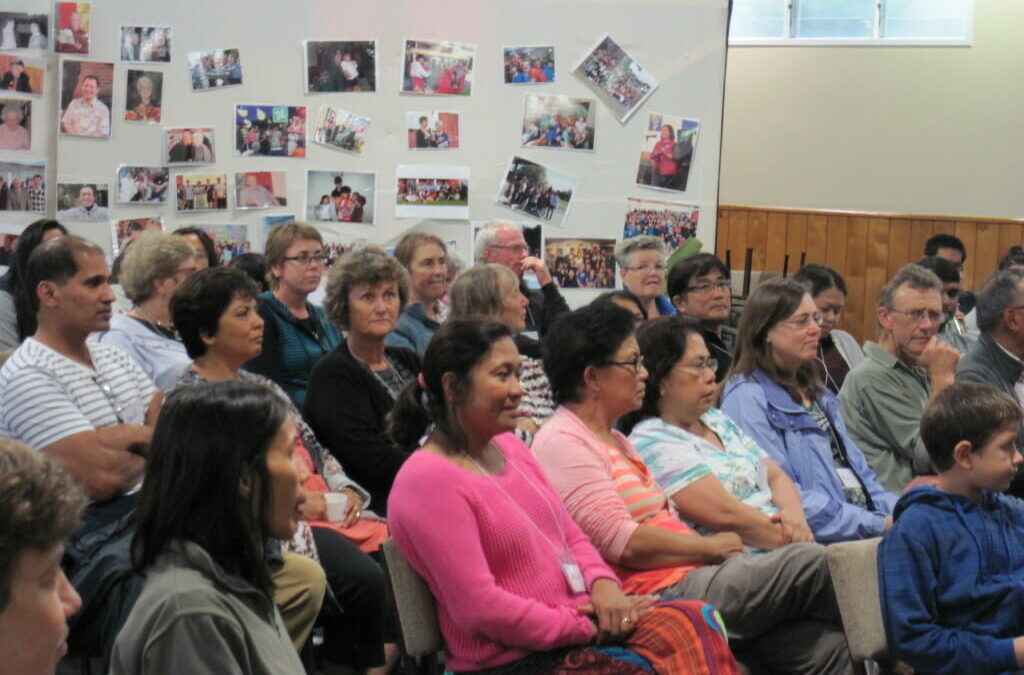
Apr 20, 2015 | Focolare Worldwide
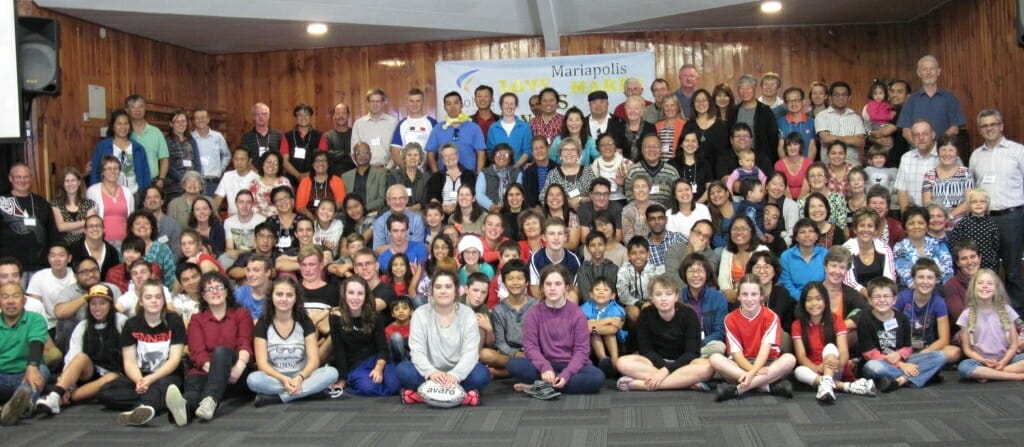 In the district of Rotorua (New Zealand) the earth’s crust is only 4 km thick. Here, one can admire the magnificent spouts of geysers right in the heart of the city, steamy puddles with bubbles gushing out of the surface. The ground emits a heat that even reaches 120°C. This is where the English colonisers had tried to install Roman baths. Still today thermal activity is at the centre of the touristic prospects of Rotorua, a city immersed in the greens and surrounded by hills. On the banks of the lake with the same name, rises the Keswick Christian Camp, a summer facility. This is the where, the Focolare scheduled to meet, about 156 people from the various cities of New Zealand’s two main islands. The objective was to spend three days together, away from the daily routing, to go deeper into the spirituality of unity.
In the district of Rotorua (New Zealand) the earth’s crust is only 4 km thick. Here, one can admire the magnificent spouts of geysers right in the heart of the city, steamy puddles with bubbles gushing out of the surface. The ground emits a heat that even reaches 120°C. This is where the English colonisers had tried to install Roman baths. Still today thermal activity is at the centre of the touristic prospects of Rotorua, a city immersed in the greens and surrounded by hills. On the banks of the lake with the same name, rises the Keswick Christian Camp, a summer facility. This is the where, the Focolare scheduled to meet, about 156 people from the various cities of New Zealand’s two main islands. The objective was to spend three days together, away from the daily routing, to go deeper into the spirituality of unity. 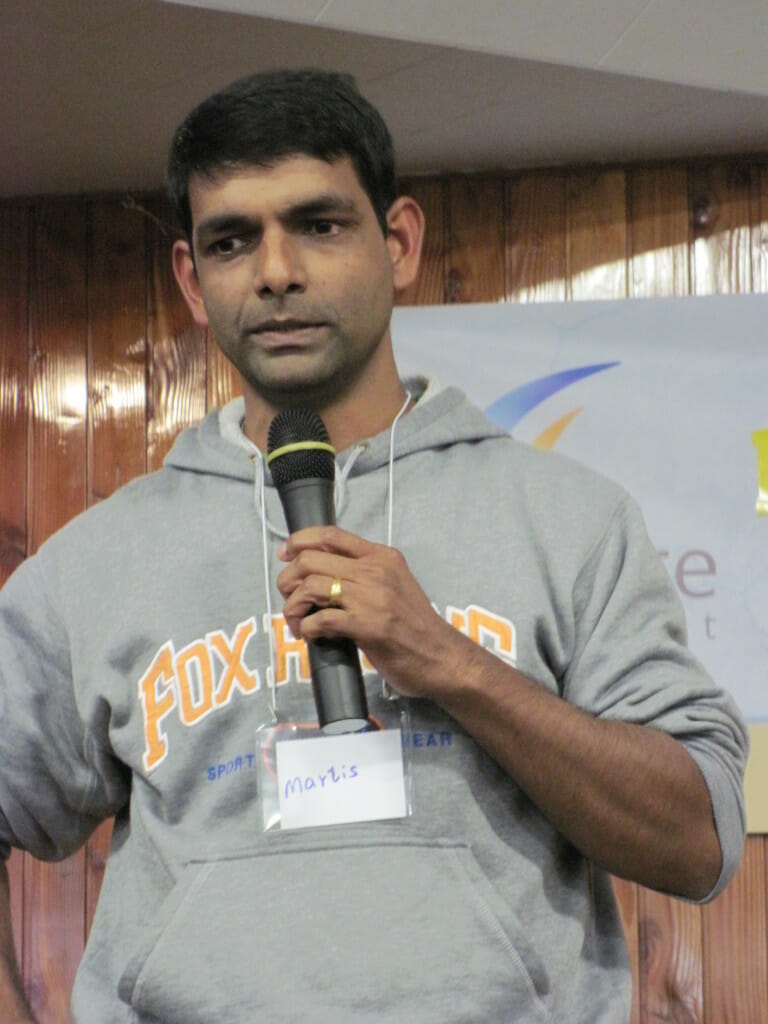 Maori, Filipinos, Chinese, Koreans, Dutch, Anglo-Saxons, Italians, Maltese, Singaporeans, Taiwanese, French, Tokelauans, Indians, Pakistanis…: an overwhelming variety of ethnic groups in a unique model of humanity. Despite such diversity, there was a family atmosphere from the start. Besides moments of spirituality and recreational activities, the programme dedicated a lot of time to getting to know one another and exchanging of experiences. The Pitcaithly family from Chistchurch, the country’s second city recounted a very moving experience of when the city was devastated by two big earthquakes. A tragedy that united the population in a sole slogan of solidarity “Kia kaha, stay strong Christchurch!” that also stood for the Focolare’s effort to gather funds offered by people from various parts of the world. The group from Gisborne, the city that has the privilege of being the first on this earth to see the sun rise, presented the “Fish & Chips Club” project. One its aims was to gather funds for the educational activities of young people, which has been fostered for many years now by people from the various Christian Church, together with others of non-religious beliefs. Together they were able to do something useful for others. Despite the multi-features of the youth and adults, they meet once a month to reflect on the Gospel and share experiences on how they try to put it into practice. A really significant way of growing as a persons and draw strength to bring ahead the various handicraft and sports activities of a club where everyone can be oneself and where people try not to stress the differences but the values all can share
Maori, Filipinos, Chinese, Koreans, Dutch, Anglo-Saxons, Italians, Maltese, Singaporeans, Taiwanese, French, Tokelauans, Indians, Pakistanis…: an overwhelming variety of ethnic groups in a unique model of humanity. Despite such diversity, there was a family atmosphere from the start. Besides moments of spirituality and recreational activities, the programme dedicated a lot of time to getting to know one another and exchanging of experiences. The Pitcaithly family from Chistchurch, the country’s second city recounted a very moving experience of when the city was devastated by two big earthquakes. A tragedy that united the population in a sole slogan of solidarity “Kia kaha, stay strong Christchurch!” that also stood for the Focolare’s effort to gather funds offered by people from various parts of the world. The group from Gisborne, the city that has the privilege of being the first on this earth to see the sun rise, presented the “Fish & Chips Club” project. One its aims was to gather funds for the educational activities of young people, which has been fostered for many years now by people from the various Christian Church, together with others of non-religious beliefs. Together they were able to do something useful for others. Despite the multi-features of the youth and adults, they meet once a month to reflect on the Gospel and share experiences on how they try to put it into practice. A really significant way of growing as a persons and draw strength to bring ahead the various handicraft and sports activities of a club where everyone can be oneself and where people try not to stress the differences but the values all can share 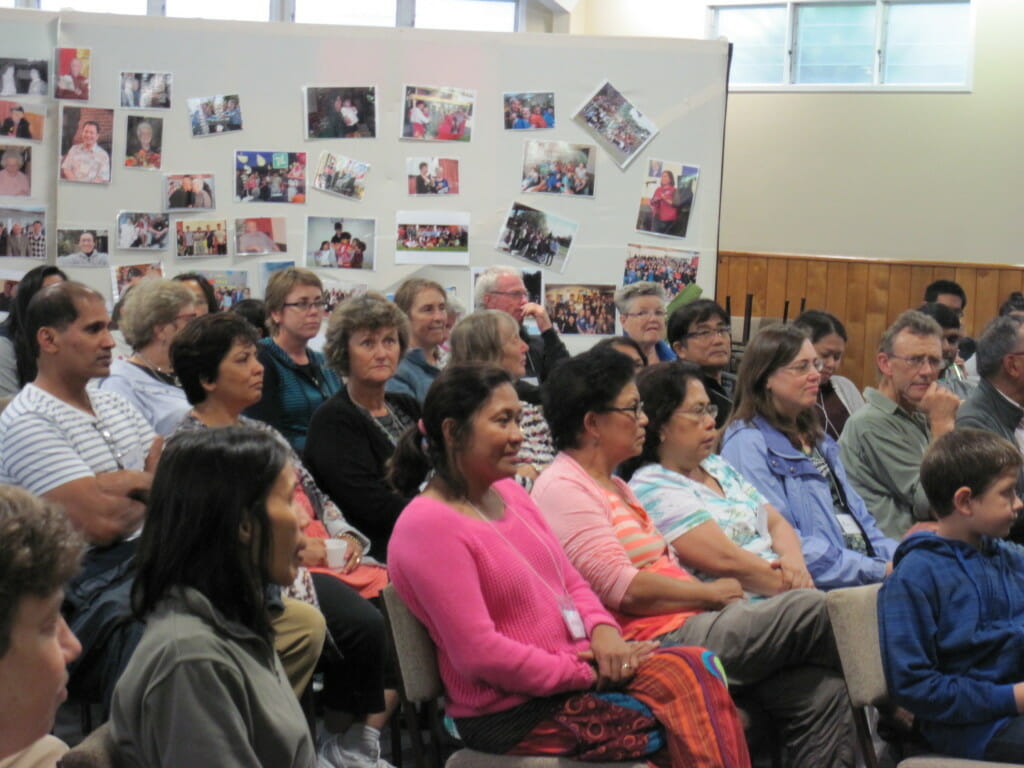 . Even if New Zealand seems to be a wealth land, an Indian-Pakistani family recounted their difficulties in integrating with society. Martis, father of two kids, was working in a home for the aged and his wife Antoneta in a small butchering company. All of a sudden they both lost their jobs. The quest for a new one went on without any results, so much so that they had decided to return to their homeland. Just ten days before the expiry of their visa, from a nearby town someone managed to arrange for a job interview for Martins who thus could renew his stay permit. It was an immense joy for this family that had given a strong testimonial of God’s love which manifests itself also through the community. Theresa, on summarising the wish of the youth present said: «What we experienced these days has given us a big boost to return to our respective cities and start all over again.» Anne, an elderly Maori lady, held in high esteem by her tribe, concluded: «Aroha te mea nui o te ao Katoa»; which in her language means: «Love is the biggest gift in the world.»
. Even if New Zealand seems to be a wealth land, an Indian-Pakistani family recounted their difficulties in integrating with society. Martis, father of two kids, was working in a home for the aged and his wife Antoneta in a small butchering company. All of a sudden they both lost their jobs. The quest for a new one went on without any results, so much so that they had decided to return to their homeland. Just ten days before the expiry of their visa, from a nearby town someone managed to arrange for a job interview for Martins who thus could renew his stay permit. It was an immense joy for this family that had given a strong testimonial of God’s love which manifests itself also through the community. Theresa, on summarising the wish of the youth present said: «What we experienced these days has given us a big boost to return to our respective cities and start all over again.» Anne, an elderly Maori lady, held in high esteem by her tribe, concluded: «Aroha te mea nui o te ao Katoa»; which in her language means: «Love is the biggest gift in the world.»
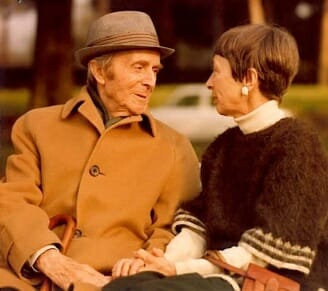
Apr 18, 2015 | Non categorizzato
 “It is nearly impossible to put into words what Igino Giordani was for the Focolare Movement. He was a co-founder of the Movement. Being co-founder of a Work that the Church recognises as its own involves a multiple and complex activity of grace, true and varied impulses from the Holy Spirit, as well as actions on the part of the individual that are determining for the Work. These graces often come in the form of penetrating and prolonged suffering, often as light, graces and love that are not ordinary. It is better left to the history of the Church and the spiritual movements that embellish it through the centuries, to speak about such people.
“It is nearly impossible to put into words what Igino Giordani was for the Focolare Movement. He was a co-founder of the Movement. Being co-founder of a Work that the Church recognises as its own involves a multiple and complex activity of grace, true and varied impulses from the Holy Spirit, as well as actions on the part of the individual that are determining for the Work. These graces often come in the form of penetrating and prolonged suffering, often as light, graces and love that are not ordinary. It is better left to the history of the Church and the spiritual movements that embellish it through the centuries, to speak about such people.
A focolarino prays, works, and suffers in order to reach a goal: the perfection of love. Therefore, we feel it is our duty to confirm that Giordani reached this goal. In our judgement he reached the perfection of love.
He personified the name by which he was known in the Movement: “Fire” (Foco), that is, love towards God and towards neighbour, the supernatural and natural love which lies at the roots and is the summit of Christian life. He contributed in a unique way to keeping alive in our midst the reality of the Word of Life given to him when he entered the Movement: “Love one another as I have loved you.”
Those who knew Igino Giordani well are all in agreement that he had lived the Beatitudes. Exceptionally ‘pure of heart,’ he offered married people from around the world the possibility of a unique consecration to God while remaining in the matrimonial state, through spiritual virginity, the effect of burning charity. This purity refined and heightened his holiest sentiments.
He was ‘poor in spirit’ with complete detachment from his possessions, but above all from himself. He was full of mercy. In his company even the most miserable sinner felt forgiven, and the poorest pauper felt like a king. One of the most remarkable characteristics was that of being a ‘peacemaker,’ especially in his life as a politician.
He came to possess that meekness that leads to possessing the earth. He won over everyone who drew near to him. Everyone felt at ease with him, even the young were able to establish a relationship with him. Especially during his last years he seemed to radiate something supernatural when he spoke.
He “hungered and thirsted for justice” and fought for it all his life. Almost immediately he was persecuted for the sake of God’s name. So many sentences of the Gospel make us think of him.
From Giordani one learns the significance of that conversion which Jesus asks for when he says that we must become like little children. He was a fine Christian apologist and apostle. When it seemed to him that he had found a font of clear water flowing from the Church, he “sold everything’ to follow Jesus and to satisfy his thirst with that water.
He suffered because of the marginalization of the laity, and he aspired with that big heart of his to bring down the dividing walls between the people living in the state of perfection and the others – whom he would jokingly add – were living in the state of imperfection. In other words, he was very sensitive to the signs of the times; indeed, he himself was a sign of the times, of these times in which the Holy Spirit calls the entire People of God to holiness.”
(Taken from: Chiara Lubich, Igino Giordani focolarino, «Città Nuova»n. 9-10 – May 1980)
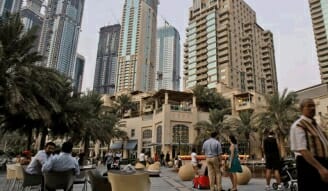
Apr 17, 2015 | Focolare Worldwide
 “In 2014 the company I was working for – Rosette recounts – assigned me to the region of Iraqi Kurdistan (KRI). To facilitate the job placement of my husband, Eric, who also had an excellent CV, we decided to settle in Dubai, in the rich United Arab Emirates where life is pleasant and comfortable. Due to all this wealth many foreigners come to Dubai in pursuit of a better life for themselves and their families, even if this entails leaving one’s own loved ones in their homelands. During one of my trips to Kurdistan, though I was two hours early for my flight, my name was removed from the list of passengers. I was nervous because this meant that I had to take a smaller plane which was scheduled to leave only at one o’clock at night. There was still a lot of time before boarding, but I went to the terminal just the same since we never can tell. Strangely however, there were a lot of people, and many were sleeping on the floor. I asked them how long we had to wait. A woman said: “It depends: we could leave immediately but also within a few days.” In fact, she had been there for two days due to a spelling mistake on her visa. And they would not allow her to leave. Just to start a conversation I asked her if she had something to eat: “Yes, I still have some crackers and a bit of water.” I invited her to have a meal with me and after a lot of insistence, she finally accepted. While we were chatting, her boss called her to check on her and to know if she had enough money to stay there. She had no money. She had sent her entire salary to her son so he could pay his university fees. After the phone call she told me her story: she was separated from her husband, and her two sons lived with their grandparents in her homeland. She had come to Dubai because her daughter was finishing high school and needed money for university. After a while I heard the announcement of my flight. I wondered how long more she would have to wait. I encouraged her take the money I was offering. And I promised I would pray for her family. Her story was just one of the many of how the immigrants live. Some families are in Dubai because of the wars in their countries (Palestinians, Syrians, Iraqis): Dubai is like a safe haven where people can live a normal life. For them, work is everything, the start and the end, since without work they would not have a visa and would not be able to stay in Dubai. Especially for those who are here alone, with the passing of time the physical distance and solitude in a foreign country often obscure their good intentions. We know of people who have extra-marital affairs, destroying in this manner the very family for which they had come here, limiting themselves to just furnishing money to their loved ones. Unfortunately most of these people accept these solutions as unavoidable facts, even if the price to pay is immense. And in the end, also we were asked to pay this same ‘price’. My frequent trips to Dubai led me to spend less and less time with Eric. So we decided to move to Kurdistan, even if this meant renouncing the good job Eric had in Dubai. Initially my company had accepted but during my talks and some violent events in Kurdistan, we were told that the company could not guarantee Eric’s safety and that he, therefore, could not move there. One of my bosses had said: ‘…with time you will get used to being separated …’. In the face of this perspective we immediately decided to resign. We were not going to be separated in any way, even if this meant giving up a well paid job and a career we had studied so much for. I must confess that it was not an easy choice at all. But in our hearts we both knew we were making the right choice. My last working day was 31 December 2014. Last January the Pope came to the Philippines, and in the meeting with families he strongly affirmed the value of the family: “We must be strong in saying “no” to any intent for ideological colonization that can destroy the family.” It seemed as if he was precisely speaking to us, and confirmed the counter current decision we had made.”
“In 2014 the company I was working for – Rosette recounts – assigned me to the region of Iraqi Kurdistan (KRI). To facilitate the job placement of my husband, Eric, who also had an excellent CV, we decided to settle in Dubai, in the rich United Arab Emirates where life is pleasant and comfortable. Due to all this wealth many foreigners come to Dubai in pursuit of a better life for themselves and their families, even if this entails leaving one’s own loved ones in their homelands. During one of my trips to Kurdistan, though I was two hours early for my flight, my name was removed from the list of passengers. I was nervous because this meant that I had to take a smaller plane which was scheduled to leave only at one o’clock at night. There was still a lot of time before boarding, but I went to the terminal just the same since we never can tell. Strangely however, there were a lot of people, and many were sleeping on the floor. I asked them how long we had to wait. A woman said: “It depends: we could leave immediately but also within a few days.” In fact, she had been there for two days due to a spelling mistake on her visa. And they would not allow her to leave. Just to start a conversation I asked her if she had something to eat: “Yes, I still have some crackers and a bit of water.” I invited her to have a meal with me and after a lot of insistence, she finally accepted. While we were chatting, her boss called her to check on her and to know if she had enough money to stay there. She had no money. She had sent her entire salary to her son so he could pay his university fees. After the phone call she told me her story: she was separated from her husband, and her two sons lived with their grandparents in her homeland. She had come to Dubai because her daughter was finishing high school and needed money for university. After a while I heard the announcement of my flight. I wondered how long more she would have to wait. I encouraged her take the money I was offering. And I promised I would pray for her family. Her story was just one of the many of how the immigrants live. Some families are in Dubai because of the wars in their countries (Palestinians, Syrians, Iraqis): Dubai is like a safe haven where people can live a normal life. For them, work is everything, the start and the end, since without work they would not have a visa and would not be able to stay in Dubai. Especially for those who are here alone, with the passing of time the physical distance and solitude in a foreign country often obscure their good intentions. We know of people who have extra-marital affairs, destroying in this manner the very family for which they had come here, limiting themselves to just furnishing money to their loved ones. Unfortunately most of these people accept these solutions as unavoidable facts, even if the price to pay is immense. And in the end, also we were asked to pay this same ‘price’. My frequent trips to Dubai led me to spend less and less time with Eric. So we decided to move to Kurdistan, even if this meant renouncing the good job Eric had in Dubai. Initially my company had accepted but during my talks and some violent events in Kurdistan, we were told that the company could not guarantee Eric’s safety and that he, therefore, could not move there. One of my bosses had said: ‘…with time you will get used to being separated …’. In the face of this perspective we immediately decided to resign. We were not going to be separated in any way, even if this meant giving up a well paid job and a career we had studied so much for. I must confess that it was not an easy choice at all. But in our hearts we both knew we were making the right choice. My last working day was 31 December 2014. Last January the Pope came to the Philippines, and in the meeting with families he strongly affirmed the value of the family: “We must be strong in saying “no” to any intent for ideological colonization that can destroy the family.” It seemed as if he was precisely speaking to us, and confirmed the counter current decision we had made.”
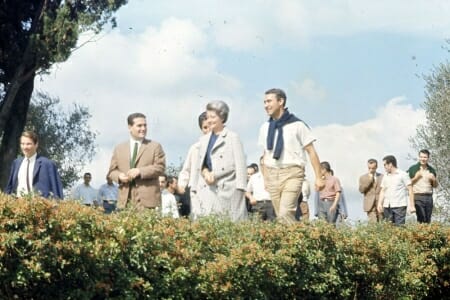
Apr 16, 2015 | Non categorizzato

In carrying out his extraordinary mission, the Apostle Paul conducted his life in a particular way: he strove to become all things to all people. In fact, he tried to understand everyone, enter into the mentality of each person: to be a Jew with the Jews, and with the non-Jews – those without a law revealed by God – to be as one without the law.
Paul followed the Jewish customs whenever this served to remove barriers or to reconcile souls; but when he worked in the Gre¬ek-Roman world, he adopted the culture and way of life of that world. He wrote:
“To the weak I became weak. I have become all things to all people, that I might by all means save some”
He saw before him the unlimited horizon of freedom from sin, from death, from the law, from the reign of Satan, from the barriers imposed by nationality, class and sex, from every form of domination by others, from the taboos of food and customs, and so on.
Paul himself lived this freedom, and with the Gospel he offered it to the communities he founded.
And yet in the liberating reality of Christianity that he announced, Paul recognized the need – or rather, the imperative – to become the slave of someone: of his brothers and sisters, of each neighbor.
He understood this essential duty from the example of Christ, who let himself be crucified in order to reach every person whatever his or her situation, in order to become the servant of everyone.
By becoming man, God drew close to every human being, but on the cross, he proved his solidarity with each of us sinners, with our weaknesses, our sufferings, our anguish, our ignorance, our questions, our burdens, our moments of feeling abandoned.
Paul, too, wanted to live this way, and he declared:
“To the weak I became weak. I have become all things to all people, that I might by all means save some”
The purpose of your life and of each new day is to reach God – and not alone, but with your brothers and sisters. In fact, you also, as a Christian, have received a call from God similar to the one received by Paul. Like the Apostle, you too must “save” someone, must “save some at any cost.”
There are those who are next to you all day long, and those you meet on the street; those with whom you speak on the phone, and those for whom you work. They may be rich or poor, men or women, fellow citizens or foreigners.
Love them all.
But this time, prefer the weakest. Make yourself weak with those who are weak in order to save them. Reach out to those who are weak in faith, indifferent or far from God, to those who profess to be atheists or who belittle religion.
If you make yourself one with them, even in their “weaknesses,” you will find that Paul’s apostolic method always works: you will conquer them!
Do you have a spouse who does not like the Church at all, and who enjoys spending hours watch¬ing TV? Keep him or her company whenever you can, as much as you can, taking a lively interest in what he or she likes to watch most.
Do you have a son who has made sports the center of his life, so much so that he is not interested in anything else, and has even forgotten how to pray? Be¬come a more avid sports fan than he is himself.
Do you have friends who love to travel, to read, to study and who have thrown to the wind all religious principles? Try to understand them by understanding their preferences and their needs and if you can, help them to find what they are seeking.
Make yourself one – with everyone, in everything, as much as you can, except in sin. In the case of anything sinful, dissociate yourself.
You will see that making yourself one with your neighbors is not time lost; it is all time gained.
One day, in the not-too-distant future, they will want to know what interests you.
And then, gratefully, they will discover, adore and love that God who has been the impetus for your Chris¬tian behavior.
Chiara Lubich
Audio in italian
Source: www.centrochiaralubich.org
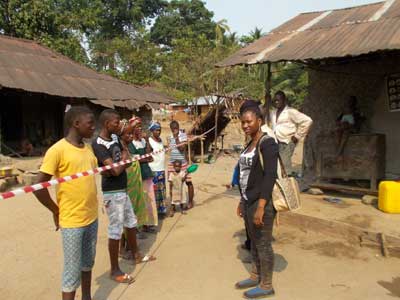
Apr 16, 2015 | Non categorizzato

Antonette, a young woman who volunteers for an NGO, in a village named Rosanda
More days of quarantine in Sierra Leone. From March 27-29 several regions of the capital Freetown and other points in the north of the country were once again isolated, following more registered cases of Ebola in previous days. Trained groups went house to house in the most at risk areas, educating and identifying the infected and possibly infected people.
“There was hope of arriving at zero cases by the end of February,” writes Father Carlo from Sierra Leone, “The schools were ready to open, but that was then postponed to the middle of April. So there is uncertainty, the people want to begin normal life, but the virus is still lurking.”
“At the beginning of the epidemic I was in Makeni for my studies,” says Antonette, a young woman who volunteers for an NGO. “The crisis appeared serious from the start, and that’s how I thought of returning to my home town where I would be safe from the virus. But then I decided to stay on as a volunteer helping the people who were infected. I was assigned to a village named Rosanda,” where there are 54 registered cases and 42 deceased. “It was sad during that first period. Around 15 people died every day. I had to inform the families and, even though I tried to put as much love into it as I could, it wasn’t an easy experience. Two children continued to ask me when their parents would return. I just couldn’t bring myself to tell them the truth. I tried my best to console them with my presence and some small gifts.” “Every day, for one month, I went all the way to that village,” Antonette continues, “learning to expand my heart to those who were in need, even if they were not members of my family or circle of friends. Now Rosanda has finished its 21 days of quarantine. There have been no new cases and I am thankful to God that I was able to be an instrument of His love which I received each day in the Eucharist, for all those people.
Like Antonette others have also given of themselves to fight this great cause of so much suffering and pain. Families have adopted children who were left orphaned, priests and religious held nothing back. Amongst these is Father Peter who worked in several villages. Thanks to his stormy intervention it was possible to block the contagion and reduce the number of victims.
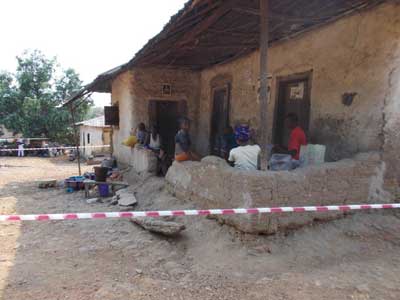 His story is connected to Small Bumbuna, a village in the Diocese of Makeni, 200 miles from Kailahum where the epidemic began. “The illness spread like the fire in dry season, in Sierra Leone. With the first victims we thought of cholera, evil spirits or other superstitions. The response from the medical team was slow: it took weeks to confirm that we were dealing with Ebola. We would have wanted to visit the people from our parish in another village, but the fear was too strong. The district medical team was not able to monitor the situation and send supplies. It was difficult to access roads.” Faced with so many difficulties, Father Peter, followed by his parishioners, made: “a radical decision that brought us face to face with the Ebola,” he recounts. “We found the city deserted when we arrived. The village chief described the terrible situation. The loss of hope was clear on his face, along with impossibility of doing anything.” From there we stepped into non-stop action that involved the highest levels of authority. Father Peter was invited as “guide” to deal with the population, explaining how to stem the spreading and allow themselves to receive medical treatment. “I took on these risks,” Father Peter concluded, “because these people are my community. How could I desert them in such a moment of painful suffering? This question helped me to identify with them, to bring the problem before the authorities, and to offer myself as a guide. I learned that nothing is too small to be offered, nor too heavy to be taken up. Let us continue to pray that the epidemic may be totally eradicated and we can return to normal life.” In the course of two weeks, the danger came under control and people were able to return to their farming activities.
His story is connected to Small Bumbuna, a village in the Diocese of Makeni, 200 miles from Kailahum where the epidemic began. “The illness spread like the fire in dry season, in Sierra Leone. With the first victims we thought of cholera, evil spirits or other superstitions. The response from the medical team was slow: it took weeks to confirm that we were dealing with Ebola. We would have wanted to visit the people from our parish in another village, but the fear was too strong. The district medical team was not able to monitor the situation and send supplies. It was difficult to access roads.” Faced with so many difficulties, Father Peter, followed by his parishioners, made: “a radical decision that brought us face to face with the Ebola,” he recounts. “We found the city deserted when we arrived. The village chief described the terrible situation. The loss of hope was clear on his face, along with impossibility of doing anything.” From there we stepped into non-stop action that involved the highest levels of authority. Father Peter was invited as “guide” to deal with the population, explaining how to stem the spreading and allow themselves to receive medical treatment. “I took on these risks,” Father Peter concluded, “because these people are my community. How could I desert them in such a moment of painful suffering? This question helped me to identify with them, to bring the problem before the authorities, and to offer myself as a guide. I learned that nothing is too small to be offered, nor too heavy to be taken up. Let us continue to pray that the epidemic may be totally eradicated and we can return to normal life.” In the course of two weeks, the danger came under control and people were able to return to their farming activities.

 In response to the challenges and to the violence, she proposed an “extremism in dialogue,” that is, a dialogue requiring maximum engagement “that is risky, demanding, challenging, that aims at severing the roots of misunderstanding, fear and resentment.” Then she invited all to aim for a “a universal civilization that leads all peoples to consider themselves part of “civilization of alliance; a universal civilization which enables peoples to see themselves as part of a great happening, which is both varied and fascinating, that is humankind’s journey towards unity. She invited the UN to rethink its own calling, to reformulate its mission in order to be “an institution which truly works towards unity among nations, while respecting their strong identities.” According to Maria Voce, to say that religions are the cause of the tensions is to have a too restricted vision of the situation. What we are witnessing in many areas of the world, from the Middle East to Africa, has very little to do with religion, but has much to do with the structures marked by the culture war. From any point of view, in these cases we should not speak so much about wars of religion but more concretely, realistically and prosaically, about the religion of war. Everyone was in agreement: religions lead to peace, if not, they are instrumentalised for other ends. And so the vocation of religions is clearly stated: The Golden Rule, the foundational inspiration of all religions, which unites them, the idea of one universal human family.
In response to the challenges and to the violence, she proposed an “extremism in dialogue,” that is, a dialogue requiring maximum engagement “that is risky, demanding, challenging, that aims at severing the roots of misunderstanding, fear and resentment.” Then she invited all to aim for a “a universal civilization that leads all peoples to consider themselves part of “civilization of alliance; a universal civilization which enables peoples to see themselves as part of a great happening, which is both varied and fascinating, that is humankind’s journey towards unity. She invited the UN to rethink its own calling, to reformulate its mission in order to be “an institution which truly works towards unity among nations, while respecting their strong identities.” According to Maria Voce, to say that religions are the cause of the tensions is to have a too restricted vision of the situation. What we are witnessing in many areas of the world, from the Middle East to Africa, has very little to do with religion, but has much to do with the structures marked by the culture war. From any point of view, in these cases we should not speak so much about wars of religion but more concretely, realistically and prosaically, about the religion of war. Everyone was in agreement: religions lead to peace, if not, they are instrumentalised for other ends. And so the vocation of religions is clearly stated: The Golden Rule, the foundational inspiration of all religions, which unites them, the idea of one universal human family.  In the roundtable at the afternoon plenary, which was moderated by BBC’s, Laura Trevelyan, Rabbi David Rosen asked why so many young people feel drawn to extremism: “Perhaps because they are searching for their own identity, or for some meaning in life.” “You normally do not mention God at the United Nations,” Rabbi Arthur Schneier dared to remark: “How are we to deal with this problem – that the UN has to be neutral – when 5 of the 7 billion people on this earth belong to a religion?” For Bhai Sahib Mohinder Singh, Sikh from Birmingham: “God is omnipresent, in each one of us, therefore you cannot say that God is not here.” Maria Voce: “You speak of God when you speak of justice, sharing all the goods of the earth, sustainable development; you speak of God when you think of what we are preparing for the future generations. This is speaking of God. It is not necessary to speak of him in the abstract.” How can we preserve the integrity of interreligious dialogue? Are the religious leaders here renouncing something by coming here to the UN to talk about resolving conflicts? “I’m not renouncing anything,” affirmed Maria Voce. “I’ve come out of love, thinking about bringing my contribution of love to humanity. I’ve felt enriched by this possibility.” She concluded with a glance towards the new generations: “Returning home, what I will do will be to support the activities of the young and the very young, because I believe in their prophetic power.” Then she gave the floor to Ermanno Perotti, a young Italian had accompanied her on her visit to the United States. The twenty five year-old, with a Master’s Degree in Development Economics, used the occasion to present the l’Atlas of Universal Fraternity, a dossier of projects that promote universal fraternity in all corners of the world. Maria Voce added: “With the hope that one day even these ‘fragments of fraternity’ can be presented to the United Nations,” and that the United Nations will gather them. With this vision it becomes clear that religions have a great opportunity, but also a great task: to build peace and respond to the challenges with “extreme dialogue” rather than closing in on their own group. Susanne Janssen, New York
In the roundtable at the afternoon plenary, which was moderated by BBC’s, Laura Trevelyan, Rabbi David Rosen asked why so many young people feel drawn to extremism: “Perhaps because they are searching for their own identity, or for some meaning in life.” “You normally do not mention God at the United Nations,” Rabbi Arthur Schneier dared to remark: “How are we to deal with this problem – that the UN has to be neutral – when 5 of the 7 billion people on this earth belong to a religion?” For Bhai Sahib Mohinder Singh, Sikh from Birmingham: “God is omnipresent, in each one of us, therefore you cannot say that God is not here.” Maria Voce: “You speak of God when you speak of justice, sharing all the goods of the earth, sustainable development; you speak of God when you think of what we are preparing for the future generations. This is speaking of God. It is not necessary to speak of him in the abstract.” How can we preserve the integrity of interreligious dialogue? Are the religious leaders here renouncing something by coming here to the UN to talk about resolving conflicts? “I’m not renouncing anything,” affirmed Maria Voce. “I’ve come out of love, thinking about bringing my contribution of love to humanity. I’ve felt enriched by this possibility.” She concluded with a glance towards the new generations: “Returning home, what I will do will be to support the activities of the young and the very young, because I believe in their prophetic power.” Then she gave the floor to Ermanno Perotti, a young Italian had accompanied her on her visit to the United States. The twenty five year-old, with a Master’s Degree in Development Economics, used the occasion to present the l’Atlas of Universal Fraternity, a dossier of projects that promote universal fraternity in all corners of the world. Maria Voce added: “With the hope that one day even these ‘fragments of fraternity’ can be presented to the United Nations,” and that the United Nations will gather them. With this vision it becomes clear that religions have a great opportunity, but also a great task: to build peace and respond to the challenges with “extreme dialogue” rather than closing in on their own group. Susanne Janssen, New York 


















 His story is connected to Small Bumbuna, a village in the Diocese of Makeni, 200 miles from Kailahum where the epidemic began. “The illness spread like the fire in dry season, in Sierra Leone. With the first victims we thought of cholera, evil spirits or other superstitions. The response from the medical team was slow: it took weeks to confirm that we were dealing with Ebola. We would have wanted to visit the people from our parish in another village, but the fear was too strong. The district medical team was not able to monitor the situation and send supplies. It was difficult to access roads.” Faced with so many difficulties, Father Peter, followed by his parishioners, made: “a radical decision that brought us face to face with the Ebola,” he recounts. “We found the city deserted when we arrived. The village chief described the terrible situation. The loss of hope was clear on his face, along with impossibility of doing anything.” From there we stepped into non-stop action that involved the highest levels of authority. Father Peter was invited as “guide” to deal with the population, explaining how to stem the spreading and allow themselves to receive medical treatment. “I took on these risks,” Father Peter concluded, “because these people are my community. How could I desert them in such a moment of painful suffering? This question helped me to identify with them, to bring the problem before the authorities, and to offer myself as a guide. I learned that nothing is too small to be offered, nor too heavy to be taken up. Let us continue to pray that the epidemic may be totally eradicated and we can return to normal life.” In the course of two weeks, the danger came under control and people were able to return to their farming activities.
His story is connected to Small Bumbuna, a village in the Diocese of Makeni, 200 miles from Kailahum where the epidemic began. “The illness spread like the fire in dry season, in Sierra Leone. With the first victims we thought of cholera, evil spirits or other superstitions. The response from the medical team was slow: it took weeks to confirm that we were dealing with Ebola. We would have wanted to visit the people from our parish in another village, but the fear was too strong. The district medical team was not able to monitor the situation and send supplies. It was difficult to access roads.” Faced with so many difficulties, Father Peter, followed by his parishioners, made: “a radical decision that brought us face to face with the Ebola,” he recounts. “We found the city deserted when we arrived. The village chief described the terrible situation. The loss of hope was clear on his face, along with impossibility of doing anything.” From there we stepped into non-stop action that involved the highest levels of authority. Father Peter was invited as “guide” to deal with the population, explaining how to stem the spreading and allow themselves to receive medical treatment. “I took on these risks,” Father Peter concluded, “because these people are my community. How could I desert them in such a moment of painful suffering? This question helped me to identify with them, to bring the problem before the authorities, and to offer myself as a guide. I learned that nothing is too small to be offered, nor too heavy to be taken up. Let us continue to pray that the epidemic may be totally eradicated and we can return to normal life.” In the course of two weeks, the danger came under control and people were able to return to their farming activities.